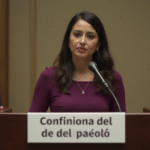Background and Relevance
The Mexican Railway Regulatory Agency (ARTF) is preparing a national tender to hire a company responsible for integrating technical office functions for the interoperability of passenger train networks along the Mexico-Querétaro central corridor. This initiative aims to minimize risks, optimize timelines, prevent technical conflicts, and ensure a secure and functional national railway system.
Key Players Interested
Among the companies that have already expressed interest in this process are Sener, Egis, Transconsult, Cal y Mayor, Aecom, DB Engineering & Consulting, and Ingerop.
Project Scope and Impact
The Mexico-Querétaro corridor will serve as the starting point for developing strategic corridors under the current federal government, including Mexico-Pachuca, Mexico-Nuevo Laredo, and Mexico-Nogales. The program will be implemented gradually, creating operational segments that can be progressively put into service, linking the capital with strategic poles and laying the foundation for further expansion across the territory.
Unlike the Tren Maya project, ARTF plans to begin integrating all train-related information (rolling stock and construction) in an external “technical office” during the early development stages. This contract, with a duration of 1,852 natural days, will eventually transfer to the personnel assigned to the Secretariat of National Defense (Defensa), who will take over responsibility.
The set of projects involves various public entities, from all levels of government, and encompasses complex planning, engineering, environmental and social management, right-of-way acquisition, and technological development. It also involves multiple construction contracts, rail systems, rolling stock acquisition, and specialized technological services.
Tender Process and Timeline
The tender announcement is expected to be published in the coming weeks, and tentatively, the decision will be announced in about a month.
For this year, under the direction of Andrés Lajous, ARTF has a budget of 166.3 million pesos authorized for contracted services.
Origins and Responsibilities
The Mexico-Querétaro central corridor originates from the Buenavista station of the Suburban Railway (currently operating until Cuautitlán), whose concessionaire is Ferrocarriles Suburbanos (comprising CAF, Omnitren, and FONADIN). This entity will need to connect with the new technical office and the military personnel assigned.
The integrating technical office will be responsible for coordinating technical interfaces, verifying RAMS (reliability, availability, maintainability, and safety) criteria, monitoring system tests, supporting digital tool implementation, and providing technical assistance until commercial operation. It will also oversee strategic supervision contracts for track construction, station development, rolling stock acquisition (CRRC Zhuzhou Locomotive won the first contract for 15 trains, and a new call will soon be launched to purchase 47 additional trains), signaling, telecommunications, ticketing systems, and quality assurance activities.
Key Questions and Answers
- What is the purpose of this tender? The ARTF aims to hire a company to integrate technical office functions for the interoperability of passenger train networks along the Mexico-Querétaro central corridor, ensuring a secure and functional national railway system.
- Which companies have shown interest in this process? Sener, Egis, Transconsult, Cal y Mayor, Aecom, DB Engineering & Consulting, and Ingerop have expressed interest.
- What is the significance of this project for Mexico’s railway sector? This initiative will contribute to the development of strategic corridors, minimize risks, optimize timelines, and ensure a secure and functional national railway system.
- What responsibilities will the integrating technical office have? The office will coordinate technical interfaces, verify RAMS criteria, monitor system tests, support digital tool implementation, and provide technical assistance until commercial operation. It will also oversee strategic supervision contracts for various aspects of the railway projects.






